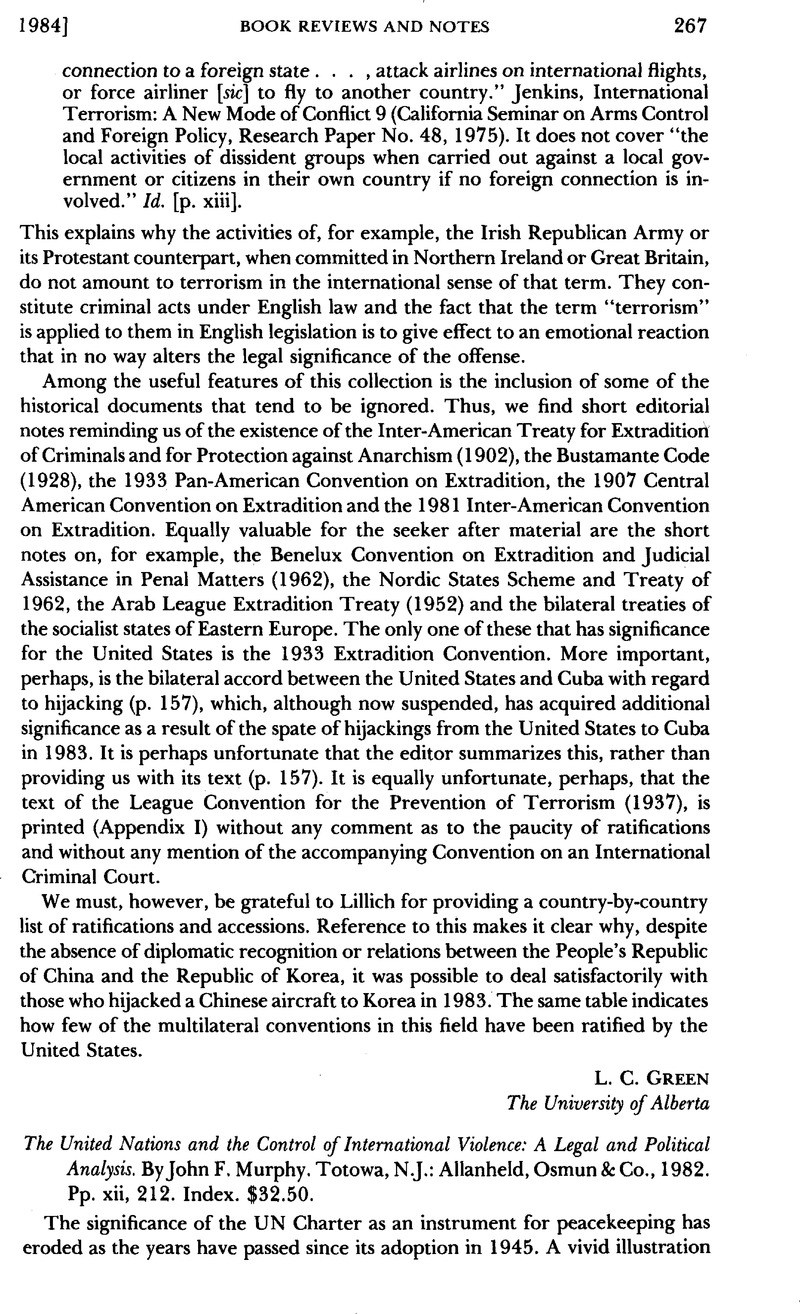Article contents
The United Nations and the Control of International Violence: A Legal and Political Analysis. By John F. Murphy. Totowa, N.J.: Allanheld, Osmun & Co., 1982. Pp. xii, 212. Index. $32.50.
Published online by Cambridge University Press: 27 February 2017
Abstract

- Type
- Book Reviews and Notes
- Information
- Copyright
- Copyright © American Society of International Law 1984
References
1 UN Charter arts. 2(3), 2(4), and 51. See Memorial of the United Kingdom (UK v. Bulg.), 1955 ICJ Pleadings (Aerial Incident of 27 July 1955) 331, 358.
2 UN Charter art. 51.
3 I.e., whether the plane was equipped with aerial cameras and whether it had been warned. Aerial reconnaissance is not armed attack and the USSR did not say it was. See Wright, , Legal Aspects of the U-2 Incident, 54 AJIL 836, 851 (1960)Google Scholar. Moreover, allegations of espionage do not justify the unlawful use of force. U.S. Diplomatic and Consular Staff in Tehran (United States v. Iran), 1980 ICJ Rep. 3, paras. 83–87.
4 The hardcover price, however, makes it unlikely that the book will be purchased in large numbers.
5 U.S. Diplomatic and Consular Staff in Tehran (United States v. Iran), 1980 ICJ Rep. 3. A discussion of the hostage crisis as opposed to the ICJ case appears in the part of the book on terrorism, at pp. 191–93.
6 Memorial of the United States (U.S. v. Iran), 1980 ICJ Pleadings (Case Concerning United States Diplomatic and Consular Staff in Tehran) 71; Oral argument at 80 Dep’t State Bull. 36 (1980).
7 1980 ICJ Rep., paras. 14, 57, 64, and 91. See The Iran Crisis and International Law 27, 39 (R. Steele ed. 1981). It seems likely that the ICJ not only had the Charter in mind but, beyond that, Article 52 of the Vienna Convention on the Law of Treaties, which provides that an agreement is void if obtained by coercion in violation of the principles in the Charter. Adumbrating a possible hostage release agreement, the ICJ repeatedly made clear that “coercion” was present. 1980 ICJ Rep., paras. 74, 87, and 91. The agreement was, of course, carried out and the road map that the Court seemed to provide for voiding it was never followed.
8 See his discussion of the conduct of Iceland and France, respectively, in the Fisheries and Nuclear Tests cases, at pp. 116–20.
- 1
- Cited by




